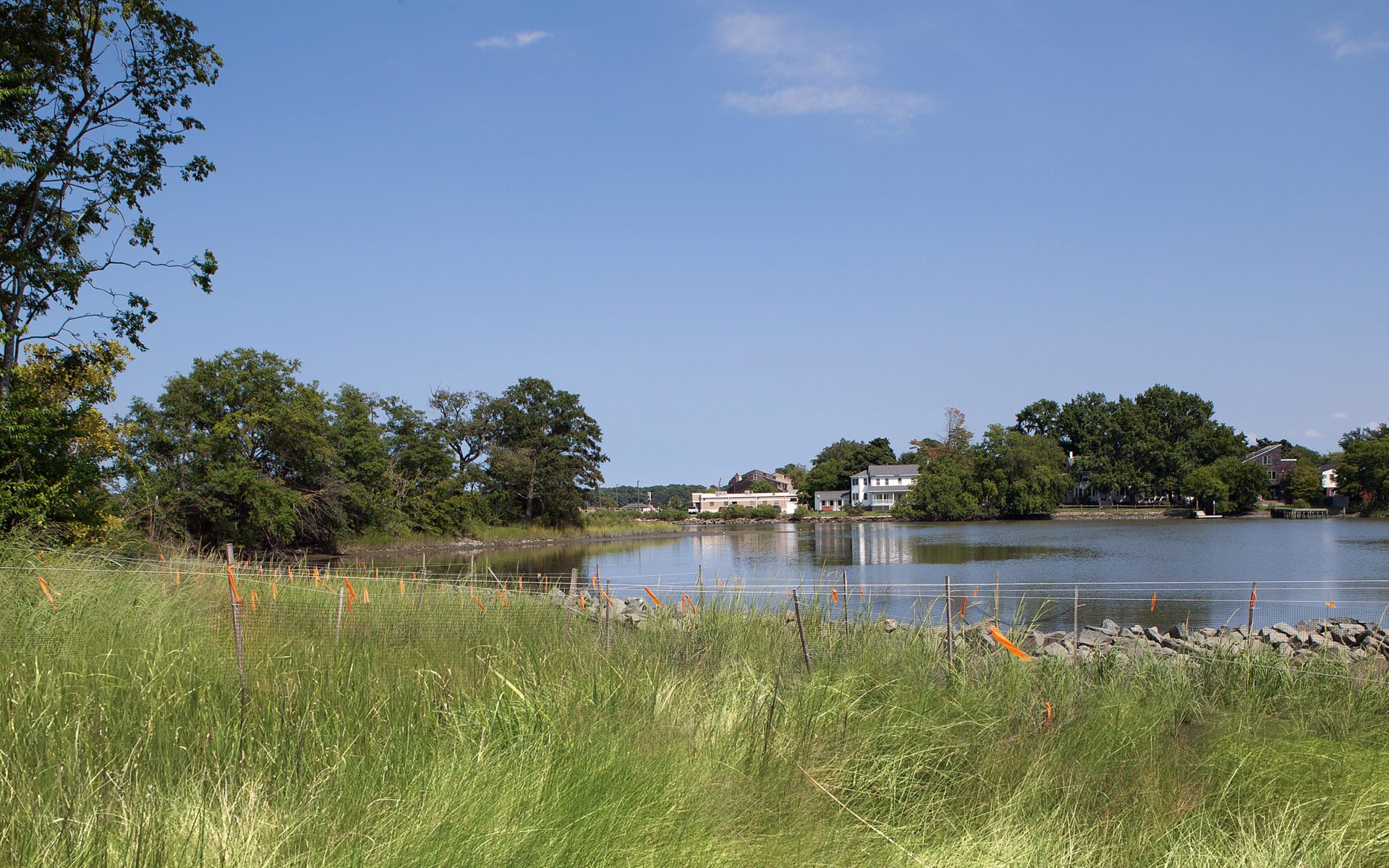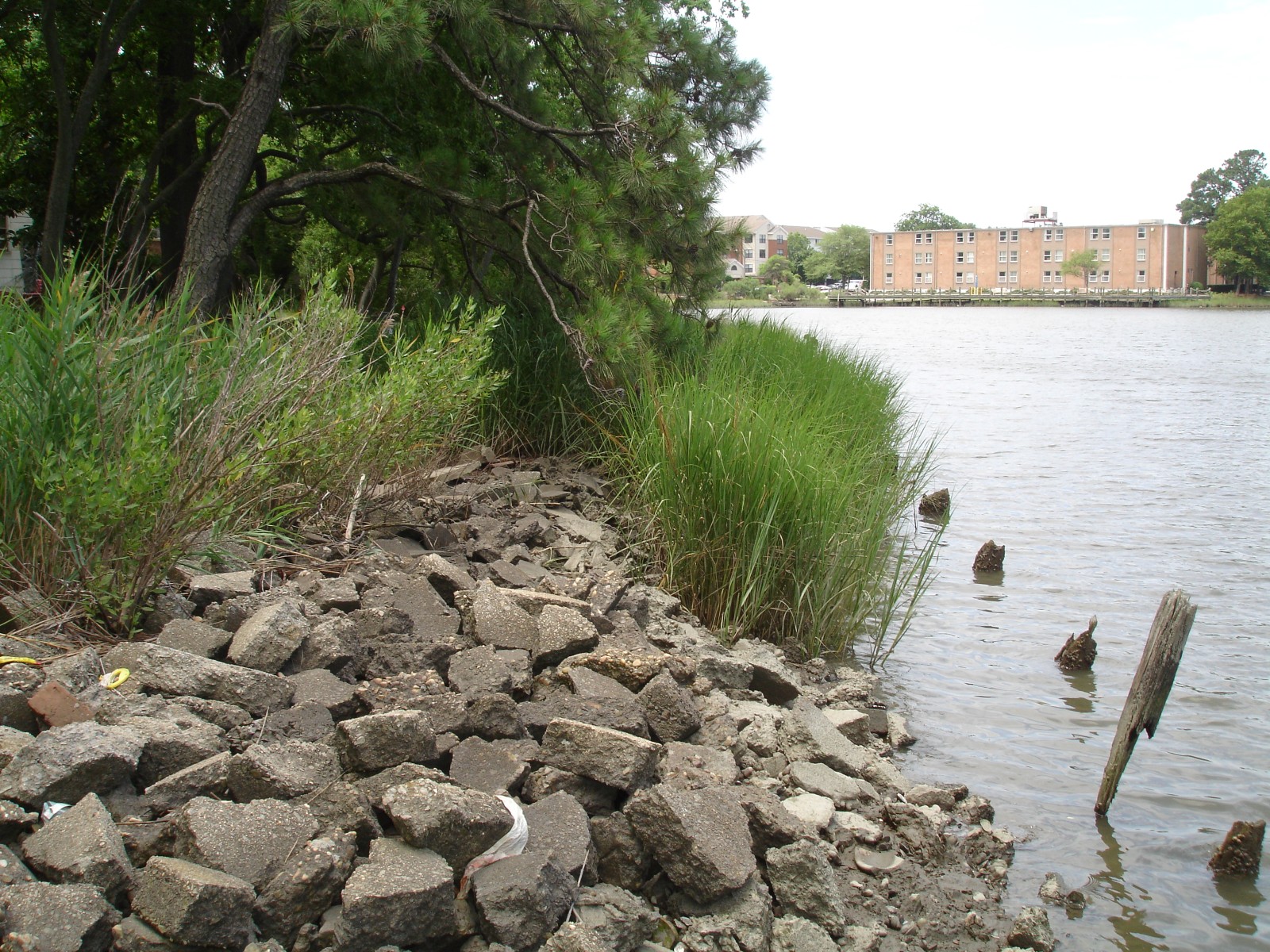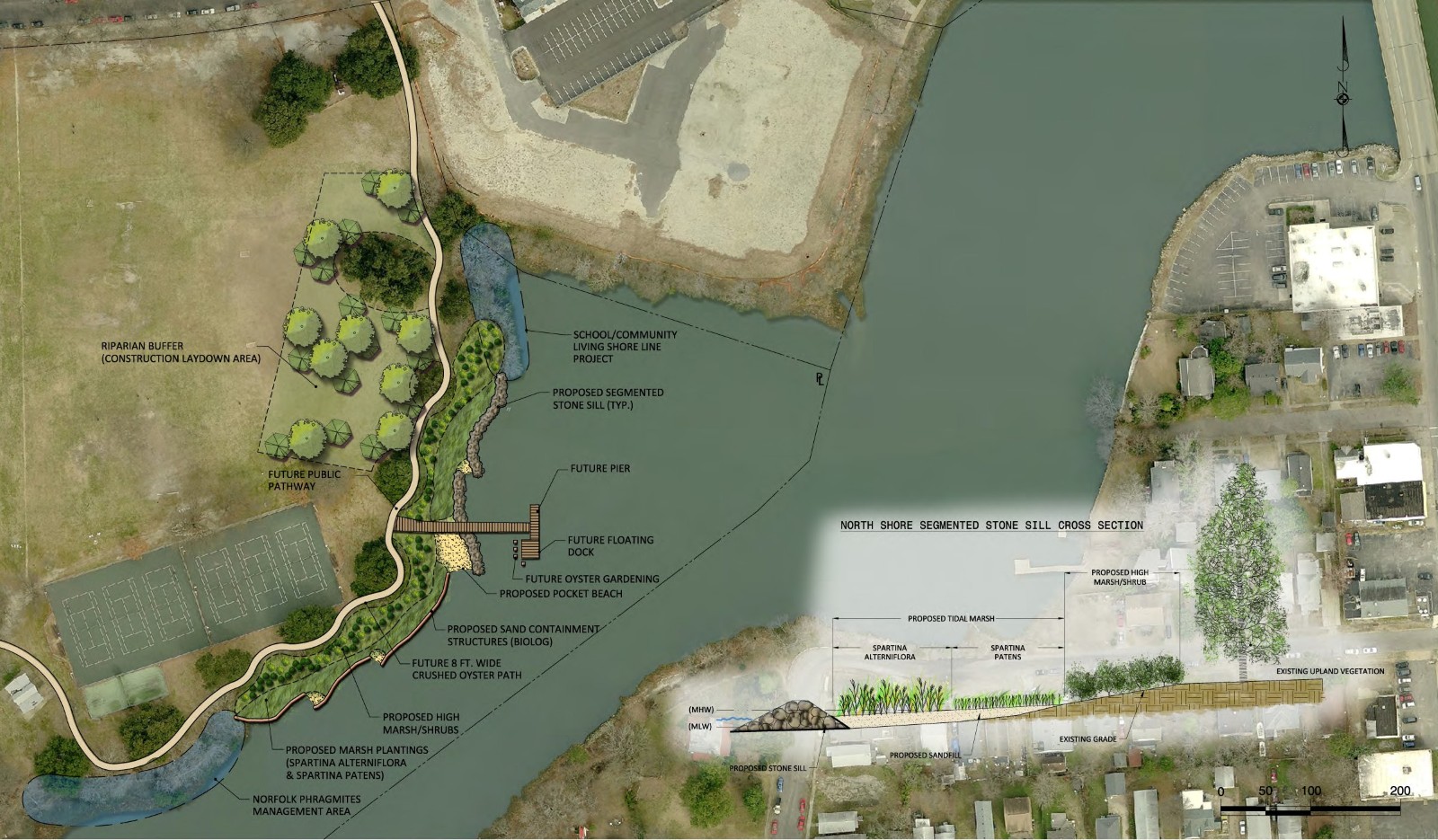Resiliency and sustainability are buzz words that carry particular weight in coastal areas such as Hampton Roads. Seeing an opportunity to enhance the function of natural ecosystems and provide waterfront access and educational opportunities along the Lafayette River, the City of Norfolk partnered with Clark Nexsen’s waterfront and environmental teams to develop a living shoreline along two separate reaches in Colley Bay.
Designed around the city’s plans for a future public pier and walking path around Colley Bay, our team addressed multiple issues along 1,100 linear feet of shoreline: denuded marsh habitats, moderate shoreline erosion, extensive concrete debris deposition, invasive species encroachment, tidal marsh subsidence, narrow riparian buffers, and upland storm water management.
The design protects the environment while allowing public access for recreation via pocket beaches. Our team utilized rip-rap sills and coir fiber logs for marsh toe stabilization to enhance both low and high tidal marsh habitats as a component of the wetland restoration. The design also included landscaping in adjacent uplands for riparian buffer restoration, per the requirements of the Chesapeake Bay Preservation Act.
Partnered with the city and BayLand Consultants and Designers, Clark Nexsen’s team also prepared the necessary support documents enabling the City of Norfolk to be successful in securing a grant to fund a portion of the North Shore restoration.
Today, the Colley Bay project is representative of the importance of restoring and maintaining coastal wetlands. In August 2016, the Lafayette Wetlands Partnership hosted their first ever Lafayette River BioBlitz at the site of the Colley Bay Living Shoreline. This event started the process of using volunteer effort to catalog the various plants and animals that live in coastal restoration sites, helping to monitor their success in the long term. The volunteer team found species from birds, to bugs, to fish, to plants, demonstrating how rapidly the restoration project has evolved into a flourishing coastal ecosystem.
Awards
2014 APWA Mid-Atlantic Honorable Mention – Environmental Under $5M
2014 ACEC Virginia Engineering Excellence Honor Award


